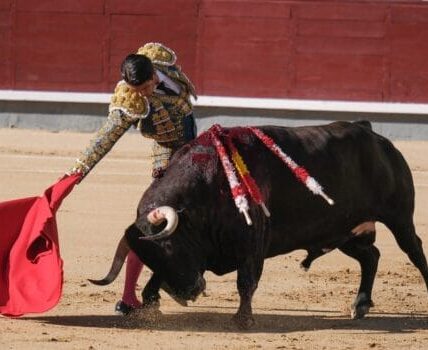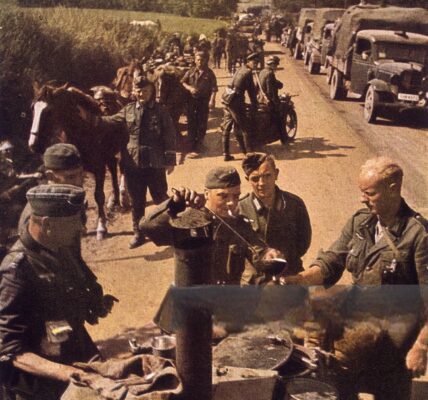
Esther McVey tells the Daily Expresso podcast Jess Phillips is ‘a disgrace’ (Image: Daily Express)
Jess Phillips’ handling of the grooming gangs inquiry blunder has been torn to shreds by a senior Conservative who described her as “a disgrace”. Esther McVey asked if Sir Keir Starmer was afraid of sacking Ms Phillips and sending her to the backbenches, saying the Safeguarding Minister was a disgrace who had discredited herself.
She told the Daily Expresso podcast: “She has touted all the time that she is the champion of women, of women’s rights. I would say she was a disgrace… She has done nothing in power. If anything she’s conflicted. Her seat is very vulnerable to the Muslim vote and it looks like she is looking after herself.”
Our community members are treated to special offers, promotions, and adverts from us and our partners. You can check out at any time. Read our Privacy Policy
Her comments came afer Ms Phillips was urged to stand down by a group of sexual abuse survivors. They have sent Home Secretary Shabana Mahmood a letter detailing conditions which they want to be met for them to return to an independent advisory panel examining child sexual exploitation, including what part ethnicity played in the abuse.
They want the inquiry to be “laser-focused” on grooming gangs and for whoever chairs the inquiry to be either a former or sitting judge. Ms Phillips told MPs on Tuesday that allegations of delay, a lack of interest or a widening of the inquiry’s scope were false.
Ms Mcvey, told the Daily Expresso: “She’s got to go, but the difficulty here is Starmer should have sacked her straightaway, but he didn’t. He dithered so you’ve got so many other people calling for her to go.
“Whether that’s survivors on the panel or Kemi Badenoch, they’re all saying she’s got to go, which has put him in a difficult position.”
Ms McVey said the Prime Minister will probably have to force Ms Phillips to resign, pointing to Westminster rumours she will be sacked on Monday.
She added: “Trust in him, and her and the inquiry has gone altogether. But if this inquiry is meant to be for those women who’ve been let down, not trusted, been called liars – this was their last chance to actually have faith in the establishment.
“If it collapses, then this shows that, really, the Labour Party will as well. So this is the pivotal moment for the Labour Party so Keir Starmer’s got to step up to the game.”
The former Tory minister accused Sir Keir of dithering and not wanting an inquiry in the first place because he fears alienating Muslim voters.
Ms McVey, echoing calls from some survivors, said the scope of the inquiry has to focus on Pakistani rape gangs and not be widened.
Ministers have nevertheless rallied around Ms Phillips, with a spokesperson for the Home Secretary saying she has her “full support”. Health Secretary Wes Streeting praised her work to support victims and survivors of violence.
Sir Keir backed her during a visit to a mosque on Thursday. He said: “The most important thing in relation to the grooming gangs is that we have the national inquiry and that absolutely gets to the truth and to justice.”
Asked if he has faith in the minister, the Prime Minister told the BBC: “Yes, of course, I do. Jess has been working on issues involving violence against women and girls for many, many years.”
In today’s Daily Expresso episode, Ms McVey described Ms Phillips’ answering of questions about the inquiry from MPs in Parliament this week as a “disgrace”, a “disaster” and “all about her”.
Challenged on why the Conservatives didn’t establish an inquiry when in power, Ms McVey pointed to a taskforce set up under former prime minister Rishi Sunak, which she said saw hundreds arrested and sent to prison. But she acknowledged more should have been done.
In the Commons on Wednesday, Sir Keir insisted the inquiry “is not and will never be watered down” and its scope “will not change”. He said it will examine the ethnicity and religion of the offenders and the right person to chair the inquiry would be found.
The Prime Minister also vowed that “injustice will have no place to hide”, as he announced Baroness Casey is being drafted in to support the work of the inquiry.
Meanwhile, two groups of survivors working with the grooming gangs inquiry have written to the PM backing Ms Phillips to stay in post as safeguarding minister after the calls for her to quit.
Another letter from five survivors to Sir Keir and Ms Mahmood listed Ms Phillips remaining in post as one of a series of conditions for them to keep working with the investigation.
Ms Phillips has been approached for comment.
Follow the official YouTube of the Daily Express and Sunday Express to catch all the action at 5pm Monday to Friday or listen wherever you get your podcasts.




